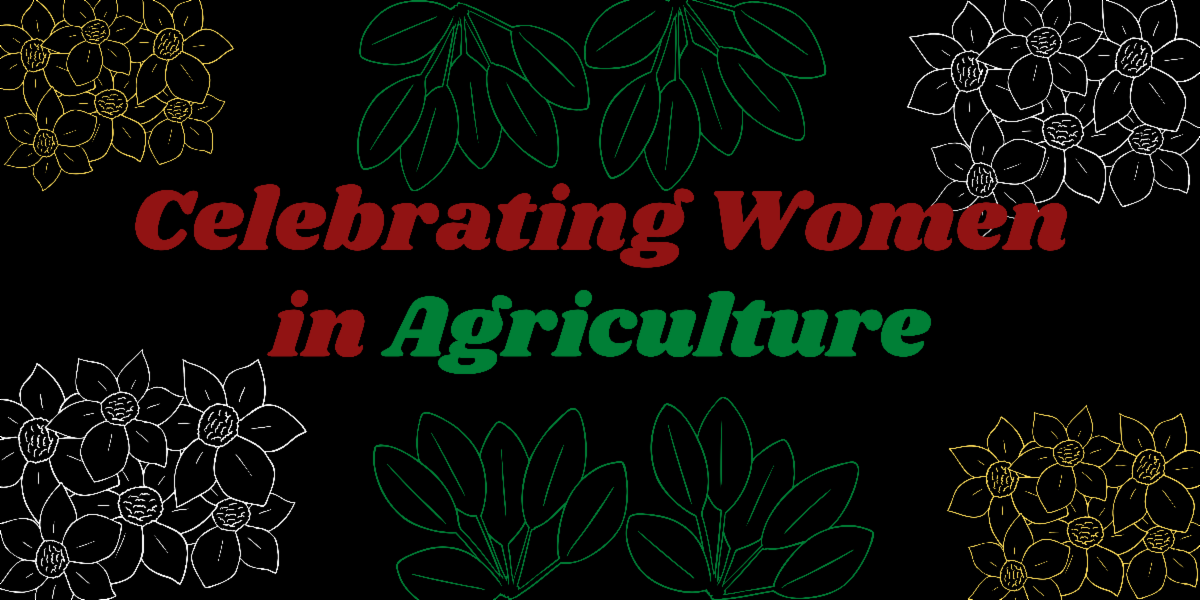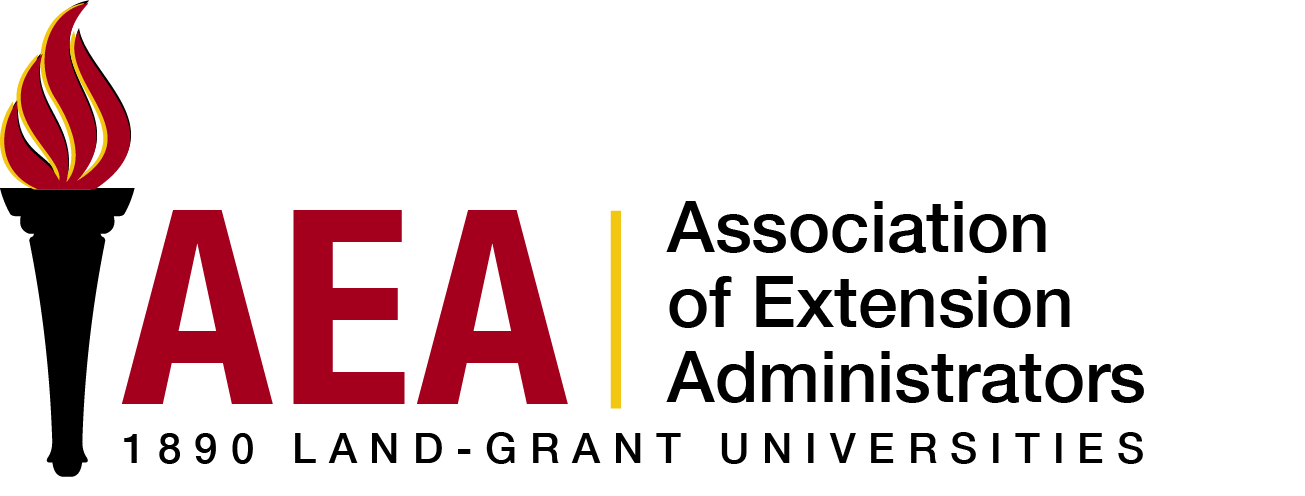Extension Today
News from and about the 1890 Land-Grant Extension SystemMessage from the Chair
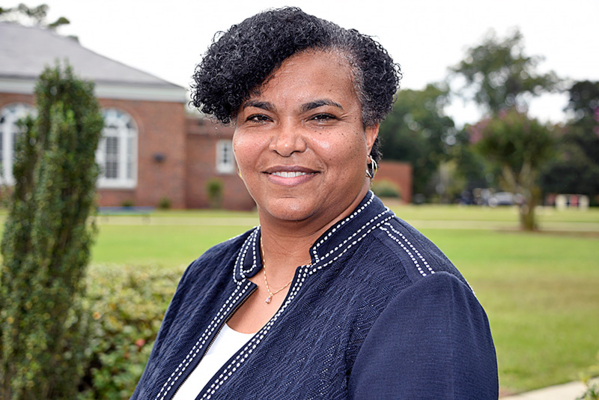
Vonda Richardson Extension Administrator, Florida A&M University
March is designated Women’s History Month to honor all women’s contributions to American society in improving the quality of life.
This issue of Extension Today highlights women as program assistants, county agents, Extension specialists and administrators, who are and have been at the forefront of 1890 Extension.
We are also celebrating the incredible women and girls who have sought innovation, change and opportunity in our respective communities. AEA celebrates this innovation and commitment of women all across the 1890 system.
Boozer Farms: Taylor’s happy place
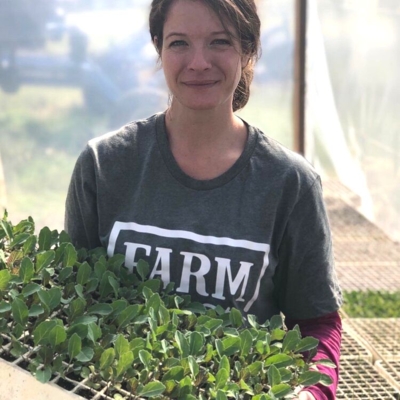
By Wendi Williams, Communications & Marketing Coordinator
Not many people can say they found their “happy place,” but that is what Boozer Farms is to Taylor Boozer Hatchett. Hatchett is a former horticulture agent and her father, Bobby Boozer, a retired Alabama Extension fruit specialist with the Alabama Cooperative Extension System. So, the Boozer family knows Extension well, applying best management agricultural practices to current farm operations.
Hatchett has devoted the past 10 years to doing what she loves – farming. With the help of her parents, marketing staff and H2-A agricultural workers, she now produces 35-40 fruits and vegetables. In addition to managing a 40-acre sod farm and growing produce, Hatchett runs a successful community-supported agriculture (CSA) program. CSAs are systems that connect food producers and consumers. Urban consumers, for example, can support a local farm by subscribing to receive fresh produce regularly.
Hatchett, a featured speaker in Alabama Extension at AAMU’s Small-Scale Market Crop Production series, advises future farmers to apply for internships to experience real farm life. To future female farmers, she adds, “Go for it! I could not imagine a job that would give the joy, peace and satisfaction that I get from farming. It is hard work but also my happy place.”
Supporting communities through Mississippi Minority Farmers Alliance
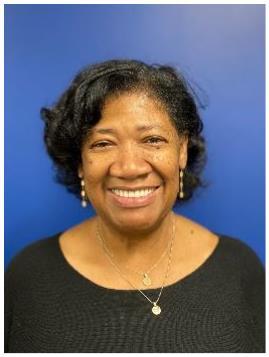
Carolyn Jones is CEO of the Mississippi Minority Farmers Alliance (MMFA). This community-based nonprofit organization was established by Black farmers who came together to preserve their community and the legacy of Black farmers.
Jones works with new and beginning farmers, socially disadvantaged, limited resource, veteran farmers and ranchers, and local communities on issues of sustainability and diversification, environmentally friendly farming, land retention, succession planning and heirs’ property management, financial management, marketing, and community growth and development. She and her husband, Chris, operate a 200-acre beef cattle farm in northeast Mississippi.
In 2016, MMFA opened the North Mississippi Agri-Business Center. The center serves as an agricultural training center, demonstration farm and food hub. During the summer months, the center serves as a farmers market. During the COVID-19 pandemic, the center partnered with 53 churches and community centers in more than 10 counties in north Mississippi to provide more than 100,000 boxes of food through the U.S. Department of Agriculture’s (USDA) Farmers to Families Food Box Program.
The uniqueness of the center is that it embodies the “whole community,” providing community membership, respect, fulfillment and pride. MMFA partners with 1862 and 1890 Land-Grant Universities, USDA, 4-H clubs, churches, schools, elected officials, local industries and other federal, state and local organizations.
Saluting the agricultural, natural resources educators at Central State University
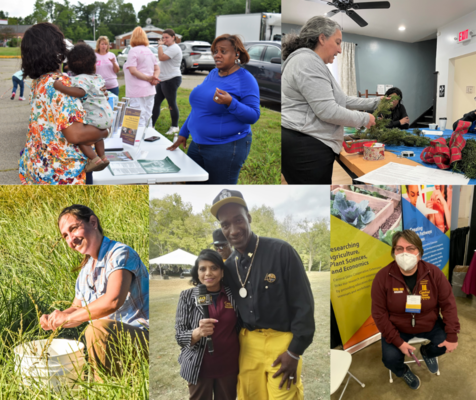
With diverse backgrounds in horticulture, natural resources and agriculture, female agricultural and natural resources (ANR) regional educators with Central State University Extension (CSUE) are engaging underserved farmers throughout the state of Ohio with both their programs and knowledge.
CSUE regional agricultural leaders include Michelle Wallace, northwest Ohio; Denise Natoli Brooks, southeast Ohio; Clare Thorn, agriculture/natural resources associate; Community/Economic Development Educator Amber Twitty, southern Ohio; and Pratibha Gupta, Ph.D., Extension specialist, family and consumer sciences.
“My responsibilities include creating programming to address issues in a sustainable, measurable and impactful manner,” says Twitty, who has been instrumental in the development of various agricultural programs.
Since joining CSUE, Wallace has advised a grower on expanding marketing for their produce that doubled their gross sales. She has also worked with a grower on a grant that gave them the ability to expand their cold storage and quadrupled their value-added product sales.
In addition, Brooks specialties include small-scale farms and farming, new and beginning farmers, pastured poultry, perennial crops, small fruits, cover crops and soil health, beekeeping, and conservation practices. Gupta’s area of specialty is nutrigenomics — how the foods we eat affect our genes and how individual genetic patterns can affect one’s health.
“My CSUE duties bring me both professional and personal satisfaction,” says Thorn. “I believe in the CSUE mission of providing research-based information and providing educational services to all residents. Joining an 1890 land-grant institution has reinforced my belief in reaching underserved populations. I can serve the needs of the community and have an impact on their lives.”
Delaware State University’s woman in ag
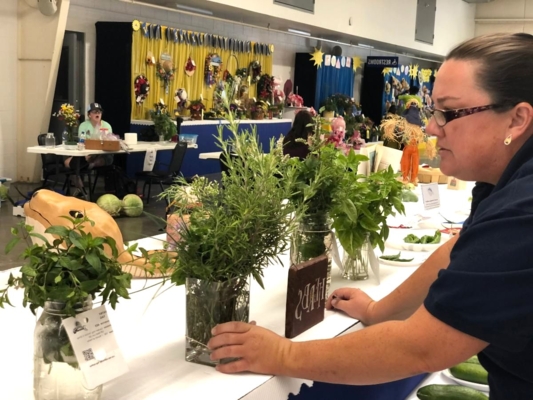
For the month of March, Women’s History Month, Delaware State University (DSU) Cooperative Extension honors Megan Pleasanton, DSU alumna and Extension educator. Pleasanton is a Delawarean, a Caesar Rodney High School graduate (We are C – R!) and a 2009 graduate of Delaware State University.
“I didn’t apply to any other university,” Pleasanton said. “It’s (DSU) local, my sister attended, and it feels like home for me.”
Her family raised cattle and she bred rabbits as a youth on her family’s 11-acre farm, but she decided to study plant science at DSU. Her interest in floriculture was sparked by a class in high school during her senior year. Pleasanton continues her passion today by growing vegetables that are native to Delaware. She is interested in how they impact the ecosystem.
Her decision to attend DSU instead of another university came down to two factors: the relative affordability of attending Delaware’s 1890 Land-Grant University and following in her sister Heather’s footsteps. Heather motivated Pleasanton to pursue higher education, especially a degree in agriculture, which would build upon her 4-H and FFA activities and work experiences on her family’s farm in Marydel, Delaware (which shares a post office with Marydel, Maryland).
FAMU Cooperative Extension spotlights creator of National Goat Conference
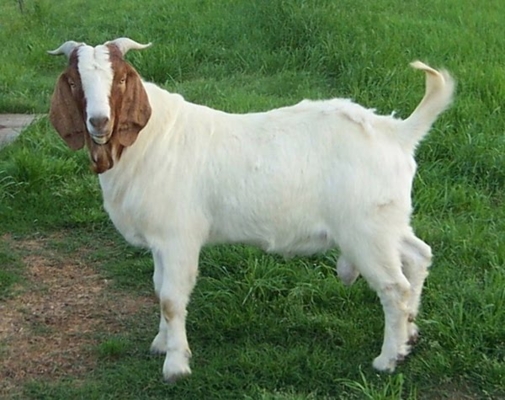
Angela McKenzie-Jakes, Ph.D., serves as the Extension animal science specialist, at Florida A&M University Cooperative Extension. Jakes has been at the forefront of small ruminant programming at FAMU Extension for more than 20 years.
In 2010, FAMU hosted the first National Goat Conference held ever in the United States. The conference is a result of a grant written by Jakes, who submitted the proposal to the Sustainable Agriculture Research and Education (SARE) in 2009, and was later funded in 2010. The conference was to be held every three years starting in 2010 at FAMU. The second was in 2013 at North Carolina A&T State University. The third conference was held in 2018 at Tuskegee University.
Jakes has maintained a constant presence in meat goat and sheep training throughout the pandemic by converting her programs into virtual interactive classes and workshops. In 2001, the meat goat training program was established through the FAMU Cooperative Extension Program to meet the needs of meat and dairy goat producers in the state of Florida. The program was later renamed in 2007 as the Master Goat Producers Certification Program. In 2008, sheep producers were included in this training initiative, renaming it the Master Goat and Sheep Producers Certification Program.
FVSU women in Extension foster healthy living
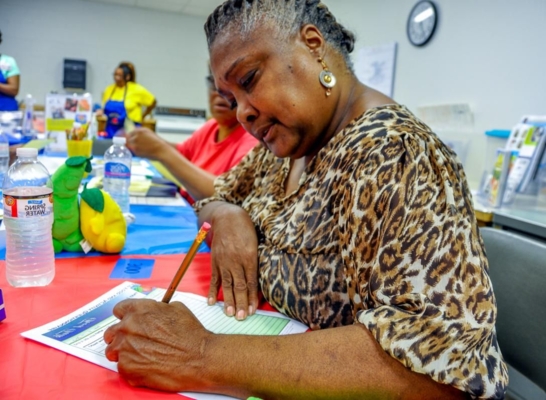
Through Fort Valley State University’s Family and Consumer Sciences (FCS) Department, Extension nutrition educators Sabrena Johnson, Alicia Montgomery and Rolanda Willingham, as well as agents Terralon Chaney, Brenda Maddox, Millicent Price and Ginger Chastine, use their super strength of service to empower countless individuals and families.
These Extension experts are taking care of their communities by hosting virtual and in-person programs. As a result, participants gain essential knowledge and skills to increase positive family dynamics, save money and enhance the longevity of life through improved health and nutrition behavioral changes.
Youth education included:
- Life skills, applications and resumes for jobs.
- Social and dining etiquette.
- Mental health conversations.
- Internet safety and physical activities.
Parents, seniors and caregivers’ education:
- Nutrition educators informed clients of healthy lifestyles through the Expanded Food and Nutrition Education Program (EFNEP) and food distribution opportunities, as well as provided recipes utilizing pantry items for optimum health and utilizing food dollars.
- Becoming career ready (enhance decision-making skills, job application training).
- Health and wellness dealing with chronic diseases, mental health, cooking demonstrations, in-home classroom and office set up, and technology programs.
- Increasing health, wellness and management (physical activities, food label reading, portion control, meal enhancement, food security).
- Learning techniques to save money with food costs (food bank opportunities) and home costs.
- Tech-savvy – introduced seniors to Zoom and social media platforms, internet safety, enhanced community awareness with Zoom.
- Facts on COVID-19 pandemic – why, where, who is eligible for the vaccine, components of the vaccine.
- Provided estate planning items to clients.
Dr. Marion Simon honored for 38 years of service to Kentucky, agriculture
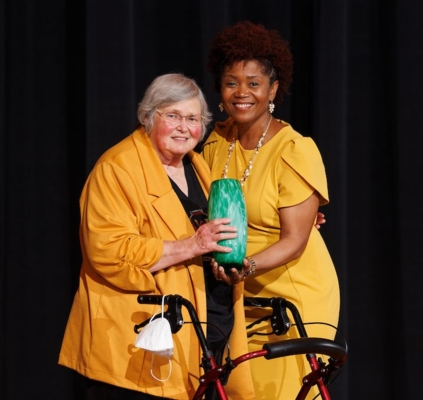
At Kentucky State University’s Heritage Assembly in February, Dr. Marion Simon was awarded the Agricultural Heritage Award.
The award is presented to an individual who has made significant contributions to the agricultural heritage of Kentucky State University. Simon is the state specialist for small farms and has worked for Kentucky State University’s Cooperative Extension for 38 years. Among Simon’s many accomplishments is founding Third Thursday Thing, Kentucky State University’s monthly program on sustainable agriculture.
In 1997, Simon secured the funding for a Southern SARE grant for training on sustainable agriculture. It began as a workshop for Extension agents only, but it quickly expanded to include farmers across Kentucky. Simon has guided Third Thursday through many years and challenges, including the COVID-19 pandemic, which caused Third Thursday to be conducted virtually only for more than a year.
“I don’t think it has outlived its usefulness yet,” Simon said. “As long as it’s helping people to practice or understand sustainable agriculture, then I think it has a place. I’d love to see it continue for the next 25 years.”
Improving the nutrition of small ruminant animals
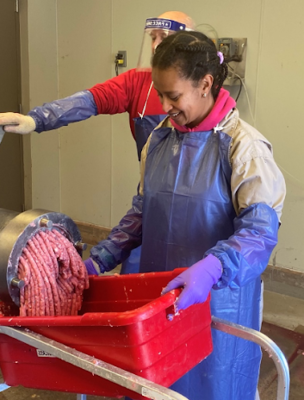
Dr. Hirut Yirga is a visiting scholar and post-doctoral researcher at Langston University's School of Agriculture and Applied Sciences (SAAS). She conducts research at the Langston University American Institute for Goat Research (AIGR).
Originally from Ethiopia, a predominantly rural county, Yirga said that most people depend on agriculture. She chose a career in agriculture to serve her country by creating innovative methods to improve the quality of agricultural practices related to small ruminant animal nutrition. She has more than 20 years of career experience in agriculture, including department head, lecturer, researcher and adviser to graduate and undergraduate students.
Yirga will present her current research on water salinity and how it affects goats' growth efficiency at the upcoming Association of 1890 Research Directors (ARD) 2022 Research Symposium held April 2-5, 2022, in Atlanta, Georgia. As a research scientist, she spends most of her days at the goat farm working on her research project or aiding other researchers and visiting scholars. She enjoys working at the American Institute for Goat Research (AIGR) because there is so much to learn.
Yirga said, "Not only can you work on your research, but you can work with other highly qualified scientists and learn from them." In addition to being an inquisitive research scientist, she is a wife and mother to two daughters and a son.
Ladies of Lincoln make their mark
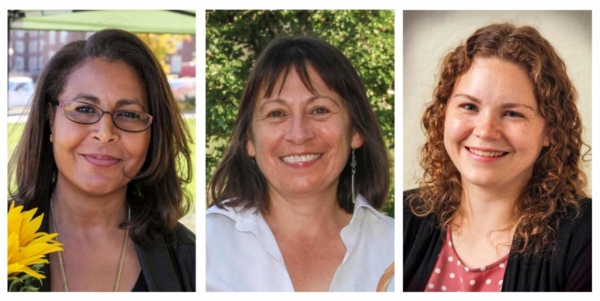
From the classroom to the farm to the boardroom, women are making a significant impact in agriculture. Historically, they have always played a critical role in farm and ranch operations, but now the trend is changing.
The number of women farmers is increasing with many of them at the helm of their operations. Here at Lincoln University Cooperative Extension, three extraordinary women are stepping into this shifting narrative, helping to shape the future of agriculture.
Drs. Tatijana Fisher, Touria Eaton and Nadia Navarette-Tindall are sharing their knowledge and expertise in agriculture with small farmers, students and people across the state of Missouri. They provide guidance to small farmers on issues ranging from technical information to help their poultry and farms thrive, assisting in establishing farms, helping minority farmers allocate resources, inspiring youth and establishing programs to teach underserved populations the connection between food sources and a healthy diet.
Whether it has been helping a farm business become an economic tool to feed neighbors, or establishing relationships that empower the community, these women are on the ground helping others to succeed.
NC AgrAbility partnership helps keep farmers on the land they love
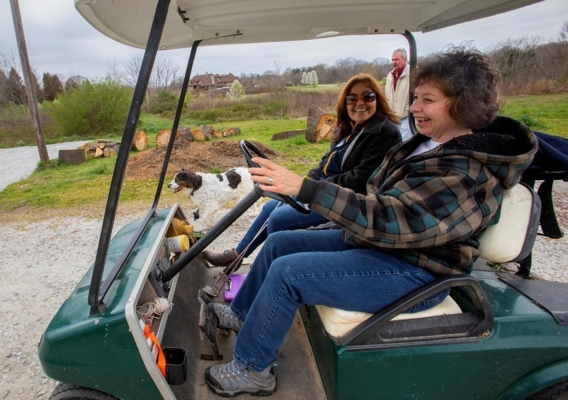
On a hot and humid July day, Suzanne Ramsey was out on her Gator™ utility vehicle surveying the vegetables, berries and flowers on her farm near Mooresville in Rowan County.
Ramsey, who suffered severe injuries when her leg was crushed by a forklift years ago and began experiencing weakness on one side of her body after a bout with a virus, says she was able to keep farming thanks to the NC AgrAbility program. The program aims to improve the quality of life for farmers, ranchers and farmworkers with disabilities by recommending assistive technologies, modifications to work environments and accommodations. NC AgrAbility is managed by Cooperative Extension at North Carolina A&T State University.
“Without AgrAbility, I would have been forced to stop farming,” said Ramsey, who sells to local restaurants and the public through a farm stand. “Now I can take people out and show them the farm, and that’s a real pick-me-up. If you can give people healthy food and a little shot of love, what can be better?”
Barbara Lange: PVAMU’s woman in agriculture honoree
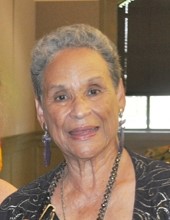
“Outgoing,” “go-getter” and “entrepreneurial” are three words that readily come to mind when you think of Barbara Lange, according to Clarence Bunch, Ph.D., program leader for Prairie View A&M University Cooperative Extension Program (CEP).
A petite beauty may not be what one thinks of when envisioning an agriculture worker. Still, she has spent more than 40 years building and growing Langetree Retreat & Eco Center in Liberty, Texas. Guests can hold corporate, church and family retreats, experience the labyrinth, tour the grounds, and at the end of the day, enjoy a peaceful night’s stay in a farmhouse-style resort hotel.
What started as a quaint little B&B now boasts of all of these things and educational courses for children, a makeshift petting zoo with goats, chickens and ducks, and occasionally, includes live entertainment. A few years ago, Lange also added Tiny Houses to the property, a housing alternative to offer local military veterans in the area who are struggling with homelessness and, some of them, addiction.
In addition to managing and operating Langetree Retreat & Eco Center, Lange also is the executive director of the Landowners Association of Texas (LAT), a nonprofit organization comprised of historically underserved farmers, ranchers and landowners across the state of Texas. LAT has partnered with Prairie View A&M University’s College of Agriculture and Human Sciences Cooperative Extension Program (CEP) for decades on joint ventures in Agriculture and Natural Resources (AgNR), as well as Community Economic Development (CED), says Bunch. And Lange isn’t slowing down now. She and LAT lay the groundwork to develop a Women in Agriculture (WIA) component to their existing services. We think Lange is the perfect person to lead the charge as she exemplifies the very essence of what it means to be a successful WIA.
Sadia Pollard makes history as the program’s first urban agriculture coordinator
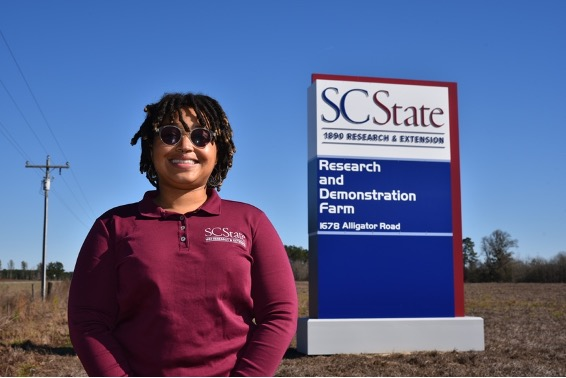
With the re-establishment of the university-owned Research & Demonstration Farm, South Carolina State 1890 Research & Extension is expanding its agriculture footprint in urban communities by welcoming Sadia Pollard as the first urban agriculture coordinator.
Under this role, Pollard will develop programs and initiatives to foster community engagement and expand access to affordable, nutritious foods while educating the community about farming.
“I aspire to create programs centered around helping urban for-profit farms create community outreach activities, at little investment to them, so that they can focus on growing food for our communities,” Pollard stated. “In addition, I hope to bring more guidance to city and county community garden programs to create more productive growing spaces focused on community resilience.”
Having been raised in a land-grant setting, the Virginia native has a deep love for 1890 intuitions.
“Despite the challenges that land-grant institutions face, they have provided me guidance, love and nurturing. They are designed to drive communities forward, and I want to play a part in that initiative,” Pollard stated.
Pollard is a 2019 graduate of North Carolina A&T University and holds a Bachelor of Science in agricultural and environmental systems with a concentration in urban and community horticulture.
Zanetta Augustine speaks candidly on finding her voice in agriculture
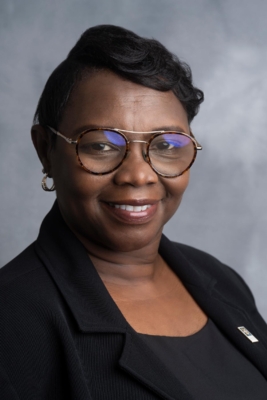
Wife, mother of two, new grandmother and nearly 30 years of service to the Southern University Agricultural Research & Extension Center is the best way to describe Zanetta Augustine. Her interest in agriculture was inspired by her mother, whom she watched matriculate through Southern University College of Agriculture during the same time that she would graduate high school. This was the only motivation she would need, to make the ultimate decision in pursuing a career in agriculture.
“I knew I had to follow in her footsteps and do more. Her tenacity, grind, vigor and raising three children all while working, I wanted to be just like her,” she said.
Initially, Augustine did not realize that nutrition and agriculture were in the same department upon graduation; however, the pursuit was still relentless. She too would go on to major in agribusiness at Southern University and Agriculture & Mechanical College and later land her dream career at her alma mater as a specialist and Agricultural and Natural Resources (ANR) Program leader.
What is one of the most important qualities a woman should have when pursuing a career in agriculture? “If you have a mission to live in this world, eat clean food, breathe clean air and you have an understanding that agriculture is the foundation for everything that we do, this is where you need to be. Just having a passion for people and wanting to educate them, train them and travel the world while doing so — just a good relationship with the environment in which you live.”
TSU Extension leads women to thrive in agriculture
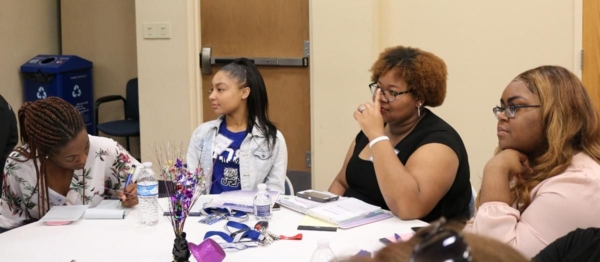
By Janiece M. Pigg
The Tennessee State University (TSU) Extension has implemented a professional development program devoted to enriching women in agricultural production. The Women in Ag Outreach Workshop, championed by Dr. Arvazena Clardy, is a free, one-day professional development conference focusing on female specific issues in agricultural production, financing, marketing, agribusiness development and professional networking.
Clardy, associate professor, explained, “We are seeing a lot more women interested in agricultural production lately. Oftentimes, women in agriculture face different problems than their male counterparts. We are also seeing that women involved in agricultural production in Tennessee are interested in different commodities and production systems than male producers. We wanted to address these issues and connect women with resources to grow their agricultural businesses to their full capacity.”
The Women in Ag Outreach Workshop features all female speakers from governmental organizations such as the U.S. Department of Agriculture (USDA), the Natural Resource Conservation Service (NRCS) and the Farm Service Agency (FSA). With more than 100 women registered to attend each year since its inception in 2019, the Women in Ag Outreach Workshop has continually bolstered female agricultural producers across the state of Tennessee. The next TSU Extension Women in Ag Outreach Workshop will be offered free of charge to all participants in fall 2022.
UAPB honors Teresa Henson as a woman in Extension
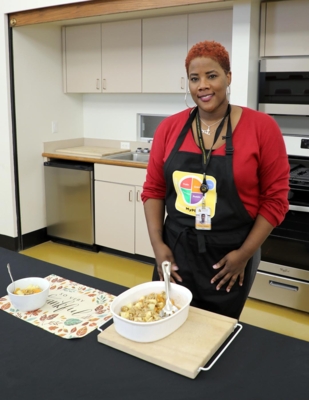
Using her training and following her passion, Teresa Henson is now enjoying her career as Extension specialist-program outreach coordinator for the University of Arkansas at Pine Bluff’s School of Agriculture, Fisheries and Human Sciences.
Henson began working for UAPB’s Cooperative Extension Nutrition program in 2017. She is responsible for providing coordination and leadership for the Expanded Food and Nutrition Education Program (EFNEP) and the Supplemental Nutrition Assistance Program Education (SNAP-Ed). She leads program staff training and collaborates with other agencies, organizations and UAPB’s faculty and staff to promote and coordinate outreach programs.
Her recent projects include organizing and conducting summer youth cooking camps, helping with the 4-H Walmart Healthy Habits nutrition education, working with other 1890 Cooperative Extension professionals to host virtual conferences, helping promote COVID-19 resources to audiences in Jefferson and surrounding counties, and working with the state EFNEP team to provide nutrition training to paraprofessionals.
Prior to coming to UAPB, Henson worked in several positions for the University of Arkansas (U of A) Division of Agriculture Cooperative Extension Service (CES). The most recent job was as an EFNEP regional program assistant where she provided program oversight to EFNEP program paraprofessionals.
A native of Little Rock, Henson has a master’s degree in health, education and promotions from the University of Arkansas at Little Rock (UALR), a Fay W. Boozman College of Public Health certificate and a bachelor’s degree in health sciences from UALR.
Burton establishes flourishing farmer’s club
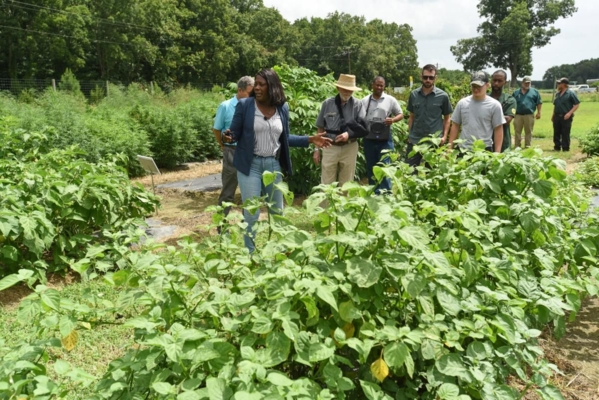
Dr. Nadine Burton, alternative crop specialist for UMES Extension, created a now flourishing farmer’s club that began meeting January 2021. Operating under the name “Around the Bay Farmer’s Alliance,” the group meets every second Saturday of the month.
It is where “veteran farmers can share their experiences and lessons learned with each other and most importantly with beginning farmers,” says Burton. “Farmers don’t think about giving formal presentations, but in a session with like-minded people, they give a lot.”
As we meet, said Burton, farmers can vent and find solutions to everyday problems. Of most concern are the problems that may eventually contribute to a suicidal rate that’s reported in some instances 3.5 times higher among farmers than among the general population.
“When we can’t solve a problem in our meeting, I call on other experts to respond to the need,” she said.
One pressing need is the need for monetary resources, which is traditionally solved by writing grants. Navigating the grant process is sometimes not easy for many farmers who are sometimes most in need. With Burton at the helm, however, it will be a team activity for the club and will soon be coupled with fundraising activities. Learn more about UMES Extension at umes.edu/extension.
Experience as 1890 4-H specialist launches Bronaugh's journey to USDA deputy secretary
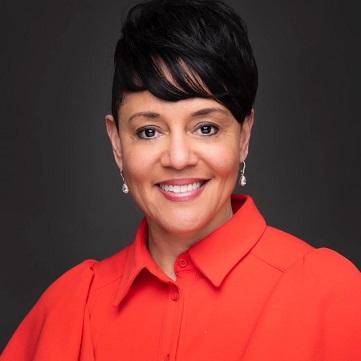
It’s 1989 at James Madison University in Harrisonburg, Virginia. A young woman named Jewel Bronaugh is studying to earn her bachelor’s degree in education so that she might follow in her parents’ footsteps and become an educator. Like many college students, the path she took to forge her career contained different turns than the one she envisioned for herself at the time.
After becoming a teacher, Bronaugh earned her master’s degree and then her doctorate in education from Virginia Tech before taking a position in 2001 at Virginia State University (VSU) in Petersburg, Virginia, where Bronaugh grew up. In a May 2020 interview with Future Farmers of America, Bronaugh said, “Taking the position in 4-H and youth development in VSU’s College of Agriculture changed the trajectory of my career; I was planning on building a career as a college professor.”
This introduction to Cooperative Extension opened many doors for Bronaugh. She gained critical experience that launched her into the position of dean of the College of Agriculture at VSU. In 2015, the U.S. Department of Agriculture (USDA) secretary appointed Bronaugh as executive director of the USDA Farm Service Agency in Virginia. In 2018, she made history serving as the first African American woman commissioner of the Virginia Department of Agriculture and Consumer Services.
Today, Bronaugh’s impacts can be felt across the nation. She was appointed by President Joe Biden in 2021 to serve as deputy secretary of USDA, becoming the first African American to fill this role. She oversees almost 30 USDA agencies with 100,000 staff across the U.S. and overseas.
Virginia Cooperative Extension extends the resources of Virginia's two land-grant universities, Virginia State University and Virginia Tech, to solve problems facing Virginians every day.
WVSU agricultural agent helps to cultivate farming industry through Extension programs
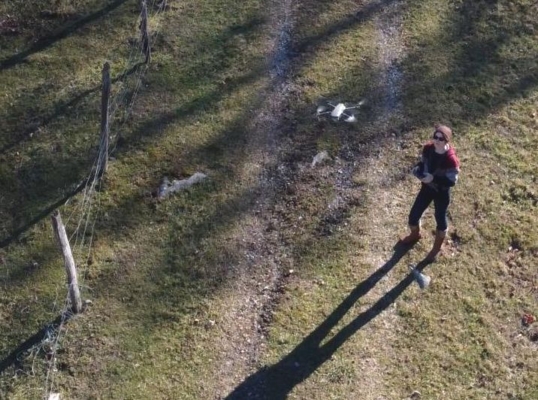
By Alisha Jarrett
Kristie Martin is an alternative agriculture Extension agent for West Virginia State University (WVSU) Extension Service, where she coordinates training and outreach events, creates educational content and collaborates with partners to promote non-traditional agricultural techniques.
Her work primarily focuses on sustainable, flexible and scalable strategies to address limited land access, climate stress, logistical challenges and the need for intensive production of high-value commodities. She also conducts drone-based aerial mapping to assist farmers and land managers with operational and conservation planning.
“WVSU’s Extension service is important because it provides tools and training to help individuals and organizations make agriculture a truly viable component of our state’s economic diversification,” Martin said. “Our programs also help individuals with disabilities or those recovering from trauma, substance misuse or incarceration find purpose and therapeutic benefits from agricultural activities and regain employment in agriculture or through related transferable skills.”
Her favorite part of her job is problem-solving and partnering with the many unique people across the state that generously share their time and apply their skills to help feed families and neighbors.
